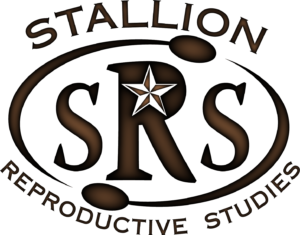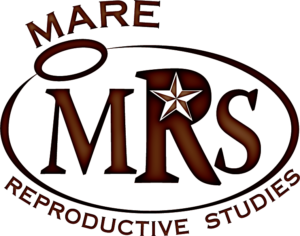Equine Reproductive Studies
The scientific advancements in equine reproduction originating from research conducted at Texas A&M University have been remarkable, leading to vast improvements in the reproductive abilities of mares and stallions under the pressures of today’s expanded production expectations. Our unrelenting dedication to the development of innovative methods for the preservation of gametes (both sperm and oocytes) and embryos has resulted in alternative means for maximizing the reproductive potential of valuable stallions and mares and has expanded the worldwide distribution of valuable genetics.

Stallion Reproductive Studies — Industry Leaders
Our advancements in the discipline of stallion reproduction have had a significant impact on the equine breeding industry for decades, and our team is considered a preeminent authority in this area. We conduct research on breeding stallions and offer expert clinical consultations with stallion owners worldwide. Our team makes frequent visits to premier equine breeding operations across the Americas, as well as in Europe and Australia. We have amassed a battery of tests to critically evaluate sperm and testicular function and have developed methods for critically assessing stallion reproductive function in the clinical setting. We have defined new approaches for the preservation of both cooled and frozen semen and devised methods for improving the reproductive performance of breeding stallions. As an example of our continued contributions to discovery, Faculty members at Texas A&M University authored/co-authored 18 research papers presented at the 12th International Symposium on Equine Reproduction at the University of Cambridge in 2018, more than any other institution worldwide. A member of our team was inducted into the University of Kentucky Research Hall of fame in 2018 for lifelong dedication and productivity in the equine research arena.

Mare Reproductive Studies — Setting the Bar
The Texas A&M College of Veterinary Medicine & Biomedical Sciences (VMBS) has been on the cutting edge, leading the study of mare reproduction and the development and refinement of technologies that improve the reproductive potential of the industry’s most important performance horses. Advances in many of the reproductive technologies used in commercial programs across the country—including techniques for embryo transfer, oocyte transfer, ICSI, and nuclear transfer—were pioneered by our faculty. Veterinarians and research scientists at the VMBS are currently working on new methods for collecting, maturing, fertilizing, and storing mare oocytes (eggs), for improving success rates with both ICSI and embryo culture, and for diagnosing genetic abnormalities of embryos prior to their transfer to recipient mares.
